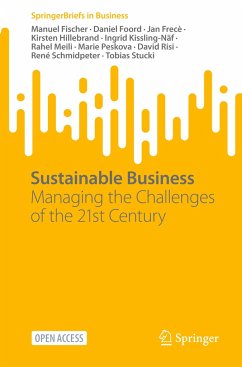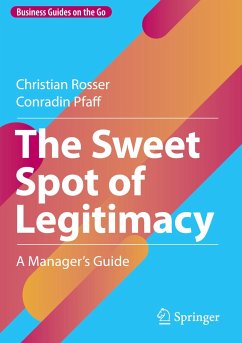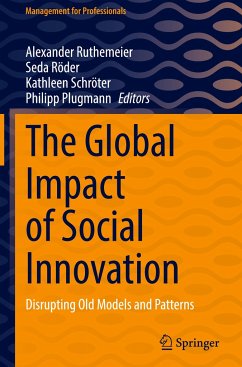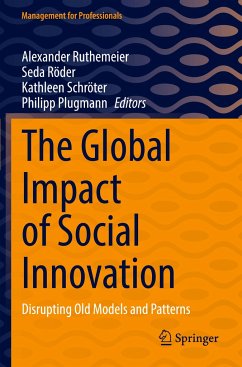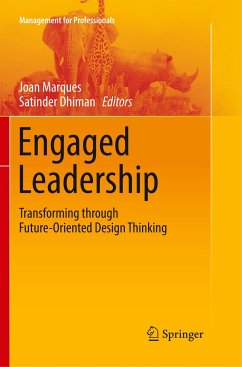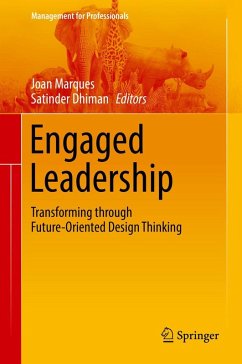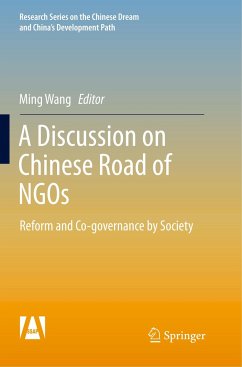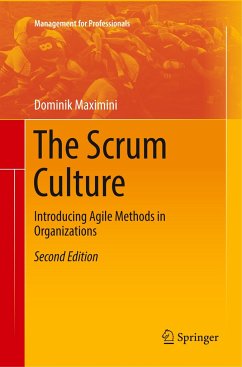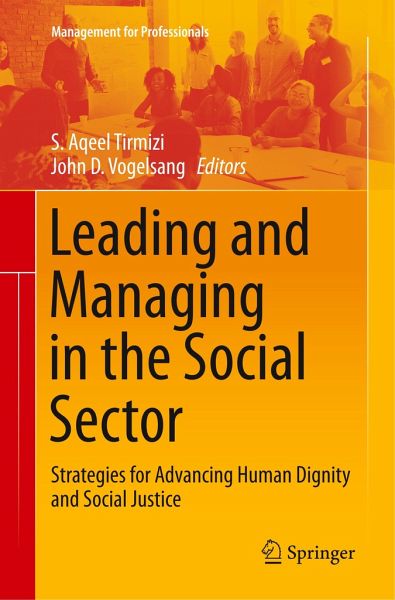
Leading and Managing in the Social Sector
Strategies for Advancing Human Dignity and Social Justice
Herausgegeben: Tirmizi, S. Aqeel; Vogelsang, John D.
Versandkostenfrei!
Versandfertig in 6-10 Tagen
46,99 €
inkl. MwSt.

PAYBACK Punkte
23 °P sammeln!
This book explores leadership and management in social sector organizations, which include, NGOs, non-profits, social enterprises, social businesses, and cross-sector collaborations focusing on advancing human dignity and social justice. It provides social sector leaders with an overview of current trends, issues, and challenges in the field as well as best practices to foster effective programs, sustain organizations and meet the growing demands of the sector. The enclosed chapters cover topics such as cross-sector organizational design, innovation for client services, gender management dynam...
This book explores leadership and management in social sector organizations, which include, NGOs, non-profits, social enterprises, social businesses, and cross-sector collaborations focusing on advancing human dignity and social justice. It provides social sector leaders with an overview of current trends, issues, and challenges in the field as well as best practices to foster effective programs, sustain organizations and meet the growing demands of the sector. The enclosed chapters cover topics such as cross-sector organizational design, innovation for client services, gender management dynamics, policy advocacy, and the growing social entrepreneurship movement.
The social sector is currently in a vibrant, dynamic, and exciting stage. The sector's role and relevance to advancing human dignity and social justice is greater than ever. The number and types of social sector organizations have increased exponentially around the world and are offering extraordinary and much needed contributions toward an array of social issues. The traditional NGOs and non-profit organizations continue to be an integral part of the global civil society. At the same time, the emerging organizational forms under the social entrepreneurship umbrella are providing new momentum and excitement within and outside of the social sector. The interest in social entrepreneurship is encouraging existing social sector entities to actively embrace and encourage innovation. This interest is also inspiring a new breed of professionals and organizations to contribute to the social sector. This trend falls under the larger social sector dynamic promoting the creation of "hybrid" and emergent organizational forms, which cross and combine the traditional non-profit and for-profit domains.
Despite the increased interest, the socialsector still faces challenges around the world. CIVICUS - an international group promoting civil society organizations and groups-- recently reported a rise in the restrictions on civil society activities in a number of countries through worsening policy and legal environments. Funding challenges for the social sector are thus becoming more significant. At the same time, the calls for social sector accountability and emphasis on results and impact are growing. This book aims to offer approaches and tools which allow for the bridging of demands between creativity and accountability, between inspiration and results, and between gaining individual commitment and shared ownership of agendas and achievements, all of which are needed to effectively operate in the changing social sector.
The social sector is currently in a vibrant, dynamic, and exciting stage. The sector's role and relevance to advancing human dignity and social justice is greater than ever. The number and types of social sector organizations have increased exponentially around the world and are offering extraordinary and much needed contributions toward an array of social issues. The traditional NGOs and non-profit organizations continue to be an integral part of the global civil society. At the same time, the emerging organizational forms under the social entrepreneurship umbrella are providing new momentum and excitement within and outside of the social sector. The interest in social entrepreneurship is encouraging existing social sector entities to actively embrace and encourage innovation. This interest is also inspiring a new breed of professionals and organizations to contribute to the social sector. This trend falls under the larger social sector dynamic promoting the creation of "hybrid" and emergent organizational forms, which cross and combine the traditional non-profit and for-profit domains.
Despite the increased interest, the socialsector still faces challenges around the world. CIVICUS - an international group promoting civil society organizations and groups-- recently reported a rise in the restrictions on civil society activities in a number of countries through worsening policy and legal environments. Funding challenges for the social sector are thus becoming more significant. At the same time, the calls for social sector accountability and emphasis on results and impact are growing. This book aims to offer approaches and tools which allow for the bridging of demands between creativity and accountability, between inspiration and results, and between gaining individual commitment and shared ownership of agendas and achievements, all of which are needed to effectively operate in the changing social sector.





